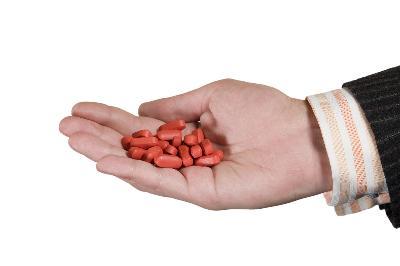Pure Forskolin Helps To Activate the Enzyme Adenylate Cyclase
Pure Forskolin activates the enzyme adenylate cyclase, which aids in the release of body fat to be burned for your body's fuel. Adenylate cyclase is also found in the Leydig cells that produce testosterone in the testicles and in turn helps in testosterone production. A 2005 study conducted at the University of Kansas reported in the journal, Obesity Research that young, overweight males who took forskolin for 12 weeks lost more body fat and increased testosterone levels and muscle mass than subjects who took a placebo. Free testosterone is the unbound form of test that is critical for helping the hormones functions in the body. To achieve the best fat burning and testosterone boosting effects, choose a Coleus forskohlii supplement standardized to provide 20-50 mg of forskolin and take 2-3 times daily.
 Forskolin is an extract from the Indian coleus plant that has been used for centuries in Ayurvedic medicine as a treatment for urinary problems. The majority of bladder infections are caused by E. coli bacteria. Although antibiotics are used to treat urinary tract infections, the infection often returns after treatment. Now research reports that forskolin may help prevent the recurrence of urinary tract infections. The study, published in Nature Medicine, investigated the effect of forskolin on urinary tract infections in mice. Researchers at Duke University Medical Center in Durham, North Carolina injected either forskolin or saltwater into the bladders of female mice infected with E. coli. The researchers found that the mice injected with forskolin had decreased bladder E. coli, compared to the saltwater group. Further analysis revealed that E. coli can slip into the lining of the bladder during antibiotic treatment and hide. Forskolin may force the hidden bacteria out of infected bladder pouches and into the urine, where it can be eliminated by antibiotics. "This type of treatment strategy may prove to be beneficial for patients with recurrent urinary tract infections," says lead researcher Soman Abraham, PhD, in a Duke University news release. "Ideally, use of this herb would expel the bacteria, where it would then be hit with antibiotics. With the reservoir of hiding bacteria cleared out, the infection should not recur."
Forskolin is an extract from the Indian coleus plant that has been used for centuries in Ayurvedic medicine as a treatment for urinary problems. The majority of bladder infections are caused by E. coli bacteria. Although antibiotics are used to treat urinary tract infections, the infection often returns after treatment. Now research reports that forskolin may help prevent the recurrence of urinary tract infections. The study, published in Nature Medicine, investigated the effect of forskolin on urinary tract infections in mice. Researchers at Duke University Medical Center in Durham, North Carolina injected either forskolin or saltwater into the bladders of female mice infected with E. coli. The researchers found that the mice injected with forskolin had decreased bladder E. coli, compared to the saltwater group. Further analysis revealed that E. coli can slip into the lining of the bladder during antibiotic treatment and hide. Forskolin may force the hidden bacteria out of infected bladder pouches and into the urine, where it can be eliminated by antibiotics. "This type of treatment strategy may prove to be beneficial for patients with recurrent urinary tract infections," says lead researcher Soman Abraham, PhD, in a Duke University news release. "Ideally, use of this herb would expel the bacteria, where it would then be hit with antibiotics. With the reservoir of hiding bacteria cleared out, the infection should not recur."